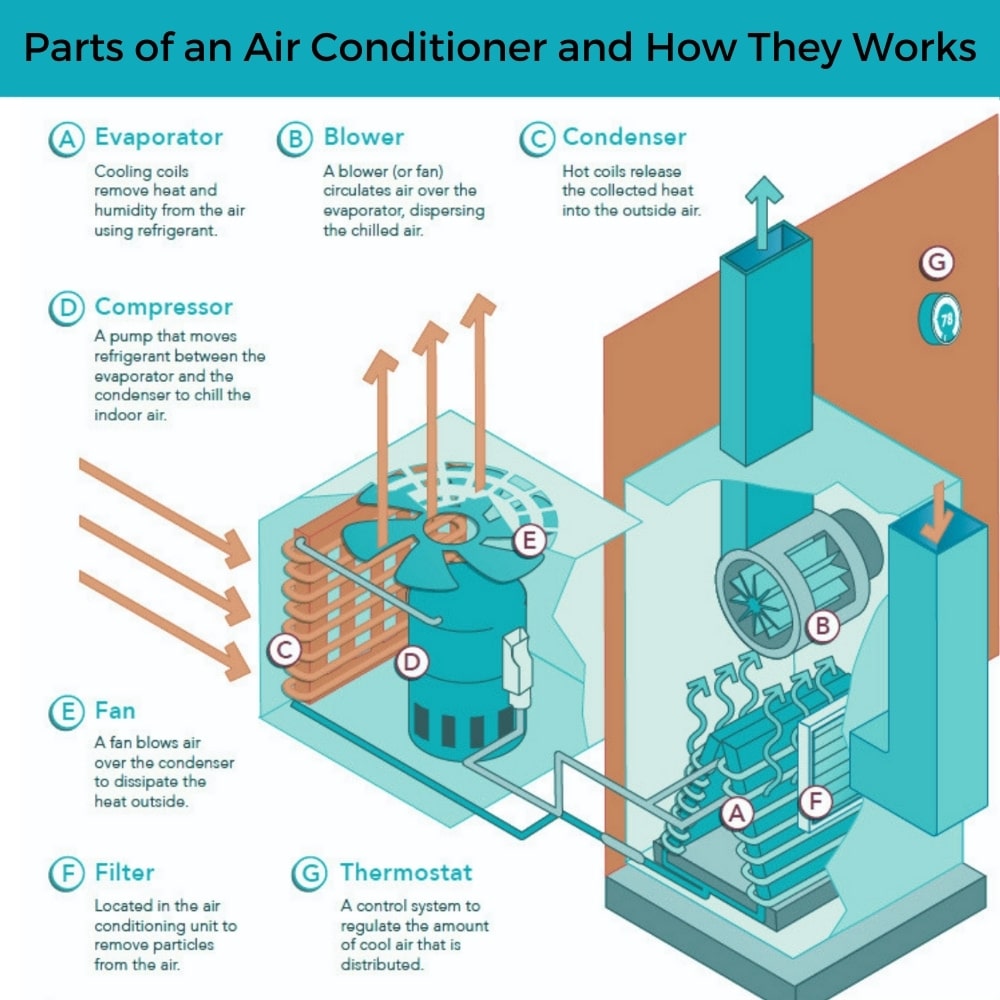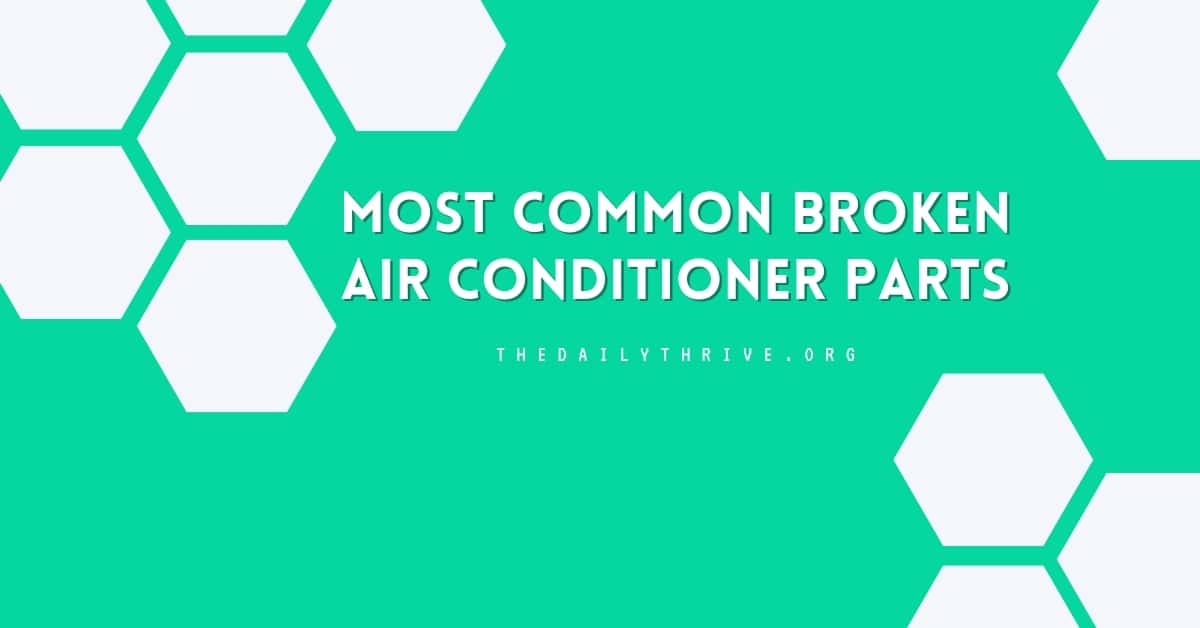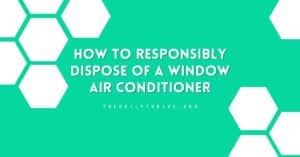There are many different interconnected air conditioning parts that can break within your unit. Certain components are more likely to suffer damage than others. According to the numbers, if you install your own AC unit, there is a greater risk of broken parts as compared to if you have a professional install your AC system.
Knowing what can go wrong with your unit will help you determine when to call out a professional. In this article, we outline some of the most common broken air conditioning parts.
Air conditioners work by removing heat and humidity from the air inside and released outside to eventually cool down your home. To complete this cooling process, many different parts of the air conditioner need to work together. These parts include the evaporator coil, blower fan, compressor and condensing coil.

If one of them fails, your air conditioner will stop working. Here are the most common air conditioner parts which are easily damaged and what you can do to keep it going.
Broken Evaporator Coil
The evaporator coil is an important part of your air conditioner that is likely to encounter a number of problems. In fact, the evaporator coil is known as the AC part, most likely to experience failure at some point.
The evaporator coil is the final component in the complex interworking system that takes place within your AC unit. The evaporator coil is responsible for doing just as its name suggests, evaporating water that comes through this compartment into a vapor.
A number of things can go wrong with this component, but one of the biggest issues is related to ice. Ice buildup is almost impossible to avoid if you live in a very cold climate, but it’s still not good for your unit.
The average evaporator will continue to run even in freezing weather, causing the moisture in the air to become stuck to the evaporator coil so that ice begins to form. The ice will build and build until it restricts airflow.
Ice might be freezing, but it can’t cool the air like refrigerant, and if the evaporator is not warm enough due to a lack of airflow, the refrigerant will turn back into a liquid. This is bad for the AC compressor and can contribute to serious damage.
Broken AC Fan
There are multiple fans located inside of your AC unit, all of which help the unit properly function. Fans are vulnerable to a host of problems that impact the overall functionality of an AC unit. A build of debris may block fan blades, or a fan can experience other issues that cause it to stop working altogether.
The outside fan on an AC unit tends to experience the greatest amount of issues. The condenser fan works with the air conditioning coils to expel air outdoors. If the fan isn’t working to push the air around the system, the unit is likely to overheat. If the fan is broken, it will cause your AC to perform very poorly, as well as increase your energy bills.
Broken AC Capacitor
A common cause of a broken AC fan is a broken capacitor. The capacitor is the main working component of your unit. Just like any and all electrical components, a capacitor is prone to breaking down over time. AC capacitors can break down due to normal wear and tear physical damage, running the wrong voltage, and overheating.
Every time you hear your AC click on, the capacitor shifts into overdrive. When all is working properly, the capacitor gets the fans up to peak speed and then stops working until the next cycle begins again. The capacitor gives your AC system the boost it needs at the start of each cycle. Without the capacitor, the air conditioning fan will not reach its premium speed. Without a working fan and capacitor, your air conditioner is at risk of overheating.
Broken Drainpipe
Your air conditioning system needs a drainpipe in order to rid the unit of moisture. Since moisture is unavoidably going to form within an AC unit, the drainpipe is a must-have. When the condensation from warm air entering the AC unit forms, it is redirected to the drainpipe and filtered outside.
Suppose the drainpipe becomes blocked, serious issues can arise. The water can back up into your home, causing water damage. Water can also back up into other parts of your AC, creating the need for more costly repairs. It’s much more affordable to pay for regular maintenance checks to ensure all parts of your unit are working instead of paying lots of money in the future for repairs.
How To Protect Your AC Unit
The key to keeping your unit working every day of the year is to catch problems early on before they have a chance to grow into larger issues. Having a professional out to check your unit annually is a great way to stay on top of your air conditioner.
At the first sign of an issue, you should call an AC repair specialist. Some signs that indicate your AC is not working properly include:
- Moldy odors
- Strange noises, especially right when the unit kicks on
- Dirt-like streaks showing up on air conditioning grills
- Frequent power outages (voltage issues are known to greatly impact AC units)
- Reduced performance
- Higher AC bills
Careful maintenance performed by a professional technician can extend the life of your system and save you significant amounts of money over time. Contact your local HVAC dealer today to protect your air conditioner parts from breaking down on the hottest day of the year.






